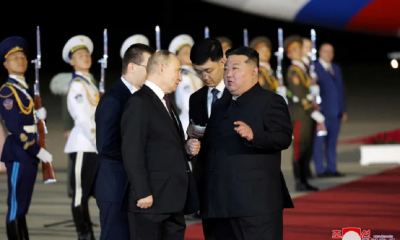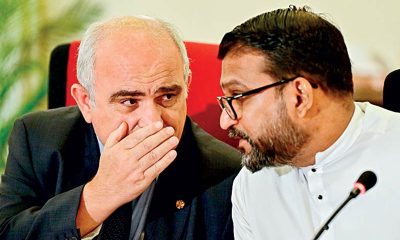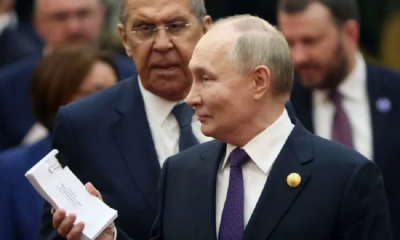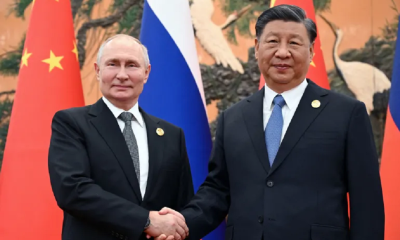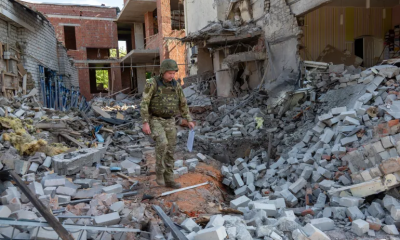Foreign News
Little chance of change as Vladimir Putin is sworn in again
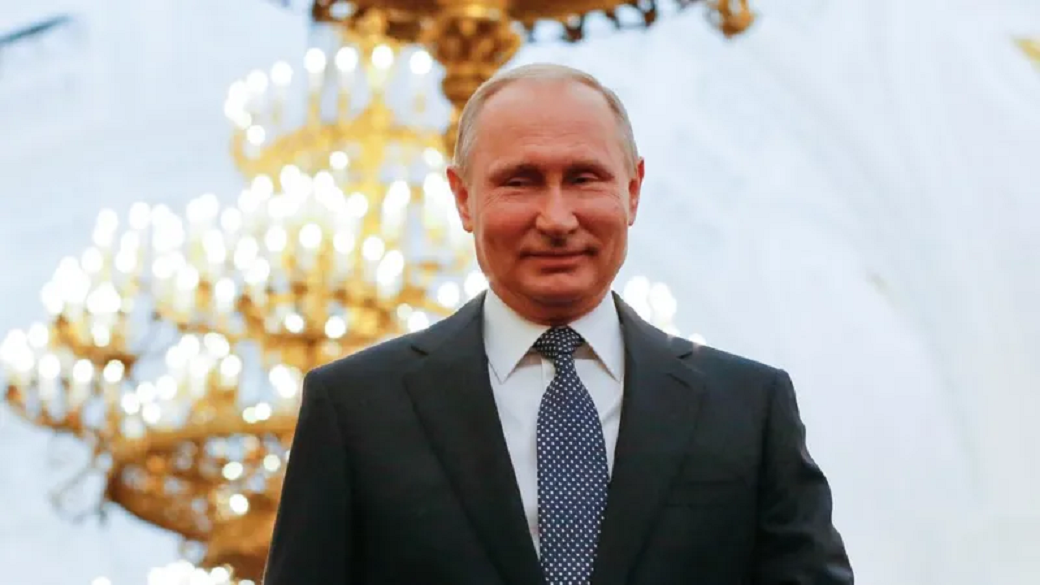
For the fifth time Vladimir Putin will be taking the long walk through the Grand Kremlin Palace to the St Andrew’s Throne Hall. There he will take the oath of office and be sworn in as Russia’s president for a new six-year term
The route may be familiar, but much has changed since Putin’s first inauguration ceremony in May 2000. Back then, President Putin pledged to “preserve and develop democracy” and to “take care of Russia.”
Twenty-four years on, the Kremlin leader is waging war against Ukraine; a war in which Russia has suffered heavy losses. At home, instead of developing democracy, President Putin has been curtailing it: jailing critics, removing all checks and balances on his power.
“Putin thinks of himself now as Vladimir the Great, as a Russian tsar,” believes Fiona Hill, a former White House national security advisor. “If we took ourselves back to his first two presidential terms, I think we’d have a fairly favourable assessment of Putin. He stabilised the country politically and made it solvent again. The Russian economy and system were performing better than at any other previous time in its history. “The war in Ukraine, going back to the annexation of Crimea 10 years ago, has dramatically changed that trajectory. He’s turned himself into an imperialist instead of a pragmatist.”
It’s remarkable to think that since Vladimir Putin first came to power, America has been through five different presidents and Britain has had seven prime ministers.
After nearly a quarter of a century running Russia, Mr Putin has certainly made his mark. In the past, people rarely spoke of “Brezhnevism”, “Gorbachevisim” or “Yeltsinism”. But Putinism: that’s a thing.
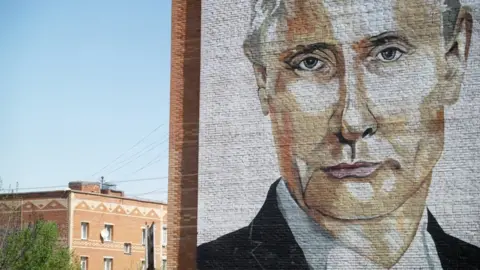
Most people have grown used to one man running Russia and no imminent prospect of change in the Kremlin (BBC)
“We have one more -ism in our history: Stalinism,” says Andrei Kolesnikov, senior fellow at the Carnegie Eurasia Russia Centre.
“I would say that Putinism is one more incarnation of Stalinism. He behaves like [former Soviet dictator] Stalin. His power is personalised like in Stalin’s time. He prefers to use a lot of political repressions. And like Stalin he is ready to keep himself in power until the physical end.”
The challenge, for the West, is how to deal with an increasingly authoritarian Russian leader determined to restore what he sees as Russia’s greatness; a modern-day tsar… with nuclear weapons.
“On the issue of nuclear weapons, there’s an awful lot that we can do,” believes Fiona Hill. “Some countries, like China, India, Japan, have been extraordinarily nervous when Putin has engaged in nuclear sabre-rattling in Ukraine and have pushed back against that. We can enforce restraint on Russia by creating an international framework for pushing back on this wild and speculative talk about using nuclear weapons.
“Perhaps that is something of a model for how we can deal with Vladimir Putin, who in many respects is something of a rogue leader. We need to create a more constraining environment, less permissive for the kinds of actions that he wants to undertake.”
Officially Vladimir Putin won more than 87% of the vote in the March presidential election. However, he’d faced no serious challenger in a contest widely seen as neither free not fair.
So how do Russians view the longest-serving Kremlin leader since Joseph Stalin?

“We don’t know who would come next if Putin goes,” says Valentina
To find out I drive to the town of Kashira, 70 miles from Moscow. Here a gigantic Putin portrait, a massive mural, takes up one whole side of an apartment block.
In Kashira Big Vladimir is watching you. “I like him,” says pensioner Valentina who is selling flowers by the roadside. “Putin has good ideas and does a lot for people. True, our pensions aren’t big. But he can’t fix everything in one go.”
“He’s had nearly 25 years,” I point out.
“But we don’t know who’d come next [if Putin goes],” Valentina replies.
“In Russia we’re all expected to think the same way,” says Victoria, who is walking past the Putin mural. “If I say anything against Putin my husband says: ‘You criticise Putin again and I’ll divorce you!’ He’s mad about him. He says that if it wasn’t for Putin life here would be as tough as in the 1990s.”
When I ask another passer-by, Alexander, what he thinks of the president, he replies: “It can be dangerous now to express an opinion. No comment.”
Most of the people I talk to say that they walk past Putin’s portrait without even noticing it now. They’re used to it.
Just like they’ve grown used to one man running Russia and no imminent prospect of change in the Kremlin.
(BBC)
Foreign News
Myanmar military announces temporary truce as quake death toll passes 3,000
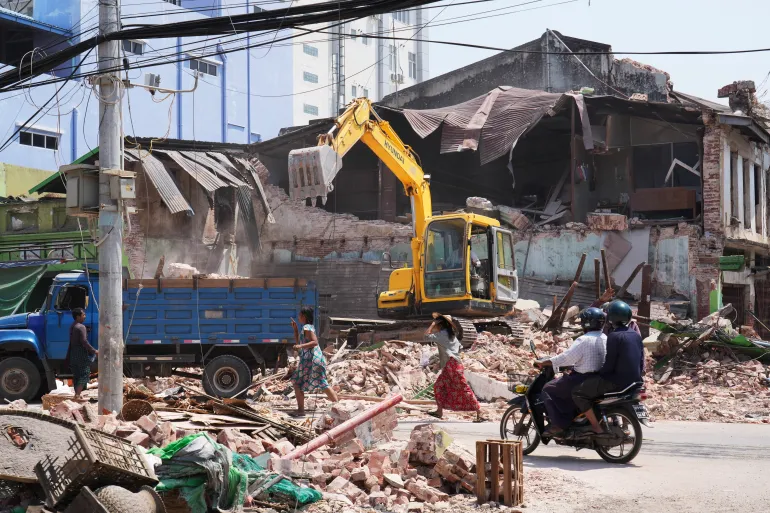
Myanmar’s governing military has declared a unilateral, temporary ceasefire in the country’s civil war to facilitate rescue efforts after last week’s powerful earthquake, as state television reported the death toll from the disaster had surpassed 3,000.
MRTV said that the truce would last from Wednesday until April 22 and was aimed at making quake relief efforts easier.
The announcement followed unilateral temporary ceasefires announced by armed resistance groups opposed to military rule. Those groups must refrain from attacking the state, or regrouping, or else the military will take “necessary” measures, the army said in a statement.
The death toll from the earthquake in Myanmar rose to 3,003, and more than 4,500 were injured, MRTV reported late on Wednesday.
In neighbouring Thailand, the death toll from the quake rose to 22, with hundreds of buildings damaged and 72 people missing.
In an incident underlining the challenge of delivering relief at a time of civil war in Myanmar, the military said its troops fired warning shots after a Chinese Red Cross convoy failed to pull over as it travelled in a conflict zone.
The Chinese Ministry of Foreign Affairs told the media that its rescue team and supplies were safe after the incident on Tuesday.
Guo Jiakun, a ministry spokesperson, said at a news conference that Beijing hoped “all factions and parties in Myanmar will prioritise earthquake relief efforts, ensuring the safety of rescue personnel and supplies from China and other countries”.
“It’s necessary to keep transportation routes for relief efforts open and unobstructed,” Guo said.

Military government spokesperson Zaw Min Tun said the Chinese Red Cross had not informed authorities it was in a conflict zone on Tuesday night, and a security team fired shots in the air after the convoy, which included local vehicles, failed to stop.
The military has struggled to run Myanmar following its coup against the elected civilian government of Nobel laureate Aung San Suu Kyi in 2021, reducing the economy and basic services, including healthcare, to tatters after civil war broke out.
The United Nations said more than 28 million people in the six regions were affected by the earthquake and that it put in place $12m in emergency funding for food, shelter, water, sanitation, mental health support and other services.
As hopes of finding more survivors were fading on Wednesday, rescuers pulled two men alive from the ruins of a hotel in Myanmar’s capital, Naypyidaw, and a third from a guesthouse in another city – five days after the magnitude 7.7 quake. But most teams were finding only bodies.
The rural parts of the hard-hit Sagaing region, mostly under the control of armed resistance groups fighting the military government, are among the most challenging for aid agencies to reach.
Earlier, Human Rights Watch urged the military government to allow unfettered access for humanitarian aid and lift curbs impeding aid agencies, saying donors should channel aid through independent groups rather than only the authorities.
“Myanmar’s junta cannot be trusted to respond to a disaster of this scale,” Bryony Lau, deputy Asia director at Human Rights Watch, said in a report. “Concerned governments and international agencies need to press the junta to allow full and immediate access to survivors, wherever they are.”
[Aljazeera]
Foreign News
Death sentence for three Americans over DR Congo coup attempt overturned
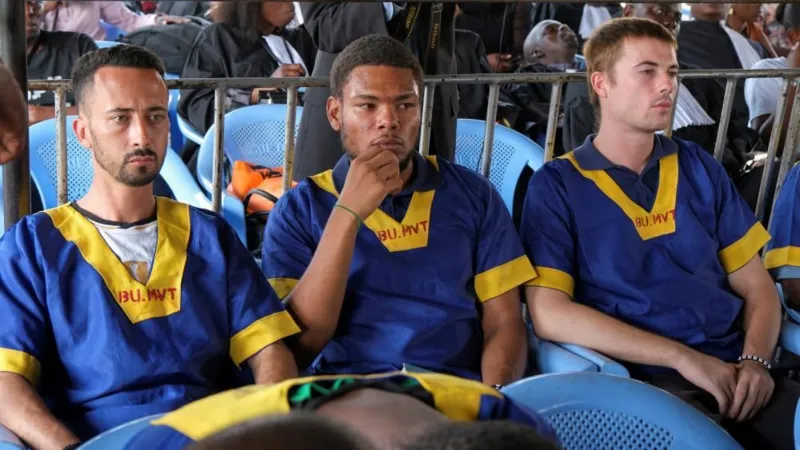
Three Americans convicted for their role in a failed coup in Democratic Republic of Congo last year have had their death sentences commuted to life imprisonment, the presidency has said.
They were among 37 people sentenced to death last September by a military court.
The three were accused of leading an attack on both the presidential palace and the home of an ally of President Félix Tshisekedi last May.
The overturning of the sentences comes ahead of a visit to DR Congo by the newly appointed US senior advisor for Africa, Massad Boulos.
Boulos, father-in-law to President Donald Trump’s daughter, Tiffany, is expected to arrive in Kinshasa on Thursday on a trip that will also take him to Rwanda, Kenya and Uganda.
The US has not declared the three Americans to be wrongfully jailed in DR Congo but the State Department said previously there have been talks between the countries over the matter.
The three were convicted of criminal conspiracy, terrorism and other charges, which they denied.
[BBC]
Foreign News
Netanyahu nominates new Israeli spy chief despite court order
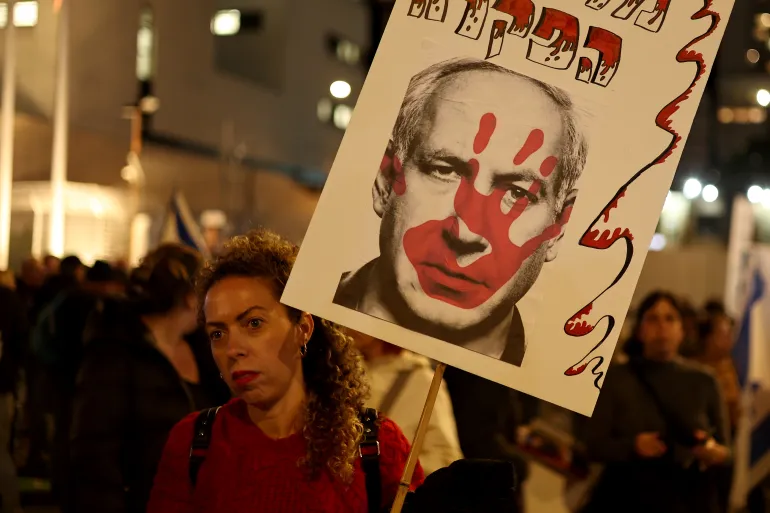
Israeli Prime Minister Benjamin Netanyahu has nominated a former Navy commander to head the country’s domestic security services, despite the courts having blocked his bid to fire the previous head of Shin Bet.
Netanyahu’s office announced on Monday that he had nominated Vice Admiral Eli Sharvit to lead the agency, which surveils attacks from abroad and at home, including by armed groups based in Palestine and Lebanon. However, a halt to the sacking of Ronen Bar as head of Shin Bet, ordered by the Supreme Court, remains in place.
[Aljazeera]
-

 Business2 days ago
Business2 days agoStrengthening SDG integration into provincial planning and development process
-

 News6 days ago
News6 days agoBid to include genocide allegation against Sri Lanka in Canada’s school curriculum thwarted
-

 Business1 day ago
Business1 day agoNew SL Sovereign Bonds win foreign investor confidence
-

 Sports3 days ago
Sports3 days agoTo play or not to play is Richmond’s decision
-

 Business1 day ago
Business1 day agoDaraz Sri Lanka ushers in the New Year with 4.4 Avurudu Wasi Pro Max – Sri Lanka’s biggest online Avurudu sale
-

 Latest News5 days ago
Latest News5 days agoIPL 2025: Rookies Ashwani and Rickelton lead Mumbai Indians to first win
-
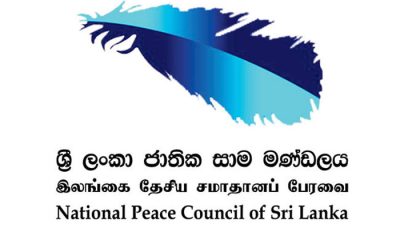
 News6 days ago
News6 days agoSL needs a comprehensive solution, not selective justice: NPC
-
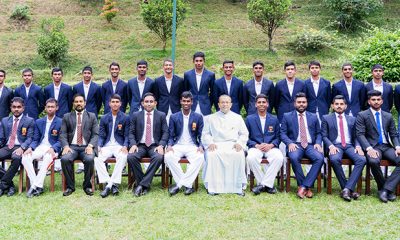
 Sports4 days ago
Sports4 days agoTrinity, St. Anthony’s out to end decade long victory drought


